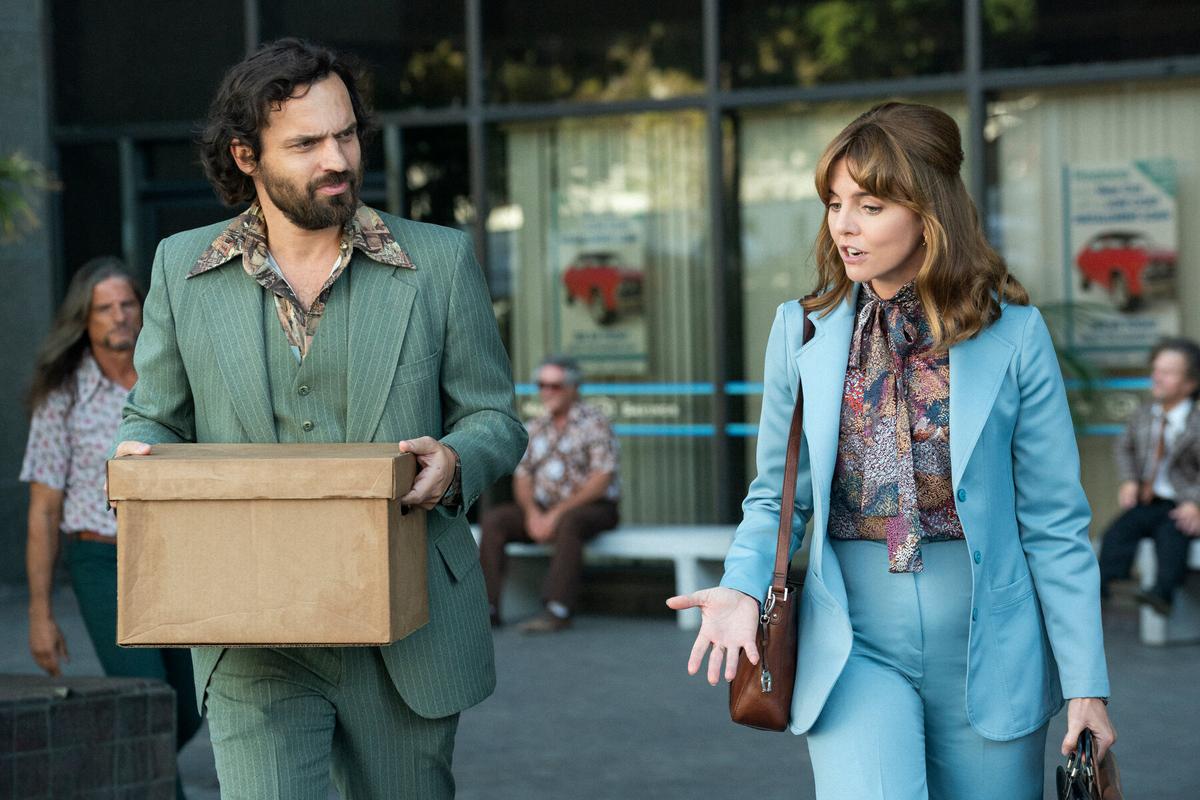
‘Minx’ season one review: A radical feminist comedy through the pages of a 70s erotic magazine
The Hindu
The series, starring Ophelia Lovibond and Jake Johnson, is patient and accurate in the portrayal of the reception of the feminist movement across socio-economic groups
The second wave feminist movement is inching towards its crescendo, reproductive rights are the talk of the town, and liberation is in the air. Joyce Prigger (Ophelia Lovibond), a Gloria Steinem fangirl and Vassar graduate, armed with feminist theory, is on the prowl for publishers for her magazine — ‘The Matriarchy Awakens’. The cover photo of an angry woman is enough to dissuade the publishers and advertisers in California, forcing her to join forces with Doug Renetii (Jake Johnson), a renowned publisher of porn magazines who believes that inequality in the porn industry needs to be bridged by creating magazines that cater to women. The product of their unlikely alliance is Minx, a feminist magazine packaged as an erotic publication for women.
Fashioned after the 70s magazines featuring nude men like Playgirl and Cosmopolitan, Minx explores the issues of abortions, marital rape, and equal pay with naked men gracing its pages.
After setting shop in Doug’s office space, Joyce’s encounters with his friends (and a possible lover *wink*) — Bambi (Jessica Lowe), the sweet blonde model; Richie (Oscar Montoya), the gay photographer; Tina (Idara Victor), Doug’s no-nonsense assistant and the only black woman in the office; gives us a glimpse into the stakeholders of Minx and the politics of sexual liberation and workplace dynamics in a low-brow magazine publishing house. Ophelia’s relationship with her sister Shelly (Lennon Parham), a regular homemaker, while playing into stereotypes, holds the feminist critique of the show in good stead.
Predictably, Doug and Joyce are confronted with multiple roadblocks on their journey to publishing Minx; from throwing punches at a creepy family friend to dealing with Sicilian mob bosses, their ingenuity and good intentions make their maneuver memorable.
Ophelia Lovibond is convincing as the ideal and resolute textbook feminist, and Jake Johnson of New Girl fame fits right into the business of selling under-the-counter magazines. Their on-screen camaraderie is playful and endearing to the eye and the nostalgic pastels of the 70s add gratifying hues to the production.
True to the pages of the magazine, the show normalises female sexuality and a whole lot of naked male bodies (the age-warning is no joke). The first centrefold model Shane (Taylor Zakhar Perez), a firefighter is your everyday charming himbo who sympathises with Joyce’s cause and in the process of educating himself on the issues at hand, believes that feminism was started by the witches. This is where Minx sets itself apart from its contemporaries — it is patient and accurate in the portrayal of the reception of the feminist movement across socio-economic groups; from well-intentioned yet ignorant men to pro-life wives of mob bosses and evangelical Christians, the show has it all.
Playing out confrontations between the college-going textbook feminists and the women on the ground in male-dominated workplaces and their respective bargains with patriarchy is sharp. The nuance and respect shown to the movement by the writers of the show while highlighting its shortcomings is commendable. From Dworkin to Anaïs Nin, there is every shade of feminism to suit your palette.













